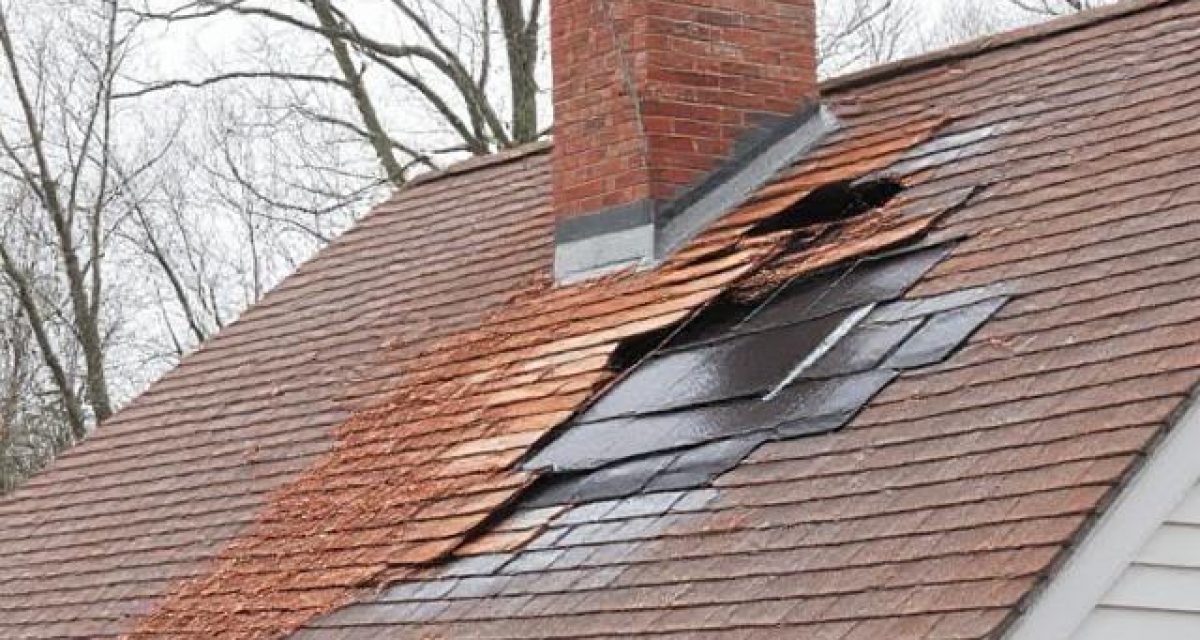New Jersey homeowners know that storms can strike at any time, bringing heavy rain, high winds, hail, and even snow. These weather events can cause significant — and sometimes hidden — damage to your roof. Identifying storm damage quickly can save you thousands in repairs, prevent leaks, and protect your home’s structural integrity.
At All State Roofing & Chimney, we provide professional roof inspections, repairs, and emergency services throughout NJ. If you suspect storm damage, call us at (862) 295-7864 or request a free estimate online today.
Why Storm Damage Can Be Hard to See
Not all damage caused by storms is immediately visible from the ground. While missing shingles are easy to spot, other issues — like compromised flashing or bruised shingles — may only be detected during a professional inspection. Left unchecked, even small problems can turn into major leaks or structural issues.
1. Look for Missing or Damaged Shingles
After a storm, visually inspect your roof for:
-
Missing shingles blown off by high winds
-
Cracked, curled, or lifted shingles
-
Shingles with missing granules (often visible as dark patches)
These issues expose your roof deck to water infiltration and should be repaired promptly.
2. Check for Damage Around Flashing and Roof Penetrations
Flashing protects the areas around chimneys, skylights, vents, and dormers. Storm winds and debris can bend, loosen, or tear flashing, creating entry points for water. Look for:
-
Rusted or dented metal flashing
-
Gaps between flashing and roofing materials
-
Missing or cracked sealant
These are common leak sources after a NJ weather event.
3. Inspect Your Gutters and Downspouts
Gutters are often the first part of your roofing system to show storm damage. Signs include:
-
Detached or sagging gutters
-
Clogged downspouts full of shingle granules
-
Dents or cracks from hail or falling debris
Damaged gutters can cause water to back up onto your roof, leading to leaks.
4. Look for Water Stains Inside Your Home
Sometimes the first sign of storm damage is indoors. Check your attic and ceilings for:
-
Water stains or discoloration
-
Damp insulation
-
Musty odors
These symptoms indicate water intrusion and should be addressed immediately.
5. Watch for Signs of Hail Damage
Hail can bruise shingles, making them more susceptible to leaks. After a hailstorm, look for:
-
Dents on metal components like vents, flashing, or gutters
-
Shingles with circular cracks or soft “bruised” spots
-
Excessive granules washing into gutters
Professional inspections are recommended to fully assess hail damage.
6. Examine Roof Accessories and Skylights
Storm winds can damage more than shingles. Check skylights, vent pipes, and roof-mounted equipment for:
-
Cracked glass or plastic
-
Missing or damaged seals
-
Bent or broken supports
Even minor accessory damage can lead to leaks if not repaired.
7. Don’t Forget the Chimney
Strong winds can loosen bricks, mortar, or flashing around your chimney. Look for:
-
Missing bricks or mortar
-
Leaning or cracked chimney stacks
-
Gaps where flashing has lifted
A damaged chimney can compromise your entire roof system.
8. Schedule a Professional Roof Inspection
While you can identify some damage from the ground or attic, only a professional can safely and thoroughly inspect your entire roof system. At All State Roofing & Chimney, our team is trained to spot even the smallest storm-related issues and provide fast, effective repairs.
9. Act Quickly to Prevent Further Damage
Delaying repairs after storm damage can lead to:
-
Worsening leaks
-
Mold growth inside your home
-
Structural damage to roof decking
-
Higher repair or replacement costs
Prompt action protects your home and your wallet.
Protect Your NJ Home with All State Roofing & Chimney
Storms are unpredictable, but your response doesn’t have to be. Regular inspections and prompt repairs can save your roof and your home from major damage.
Call All State Roofing & Chimney at (862) 295-7864 or request a free estimate online today. Our experienced NJ roofing team will inspect your roof, repair damage, and help you file insurance claims if necessary.
